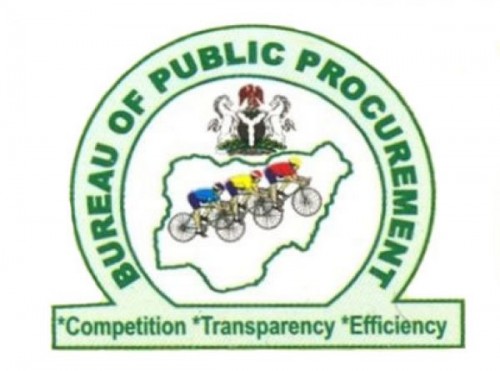The Punishments For Public Procurement Offences In Nigeria. Daily Law Tips (Tip 603) by Onyekachi Umah, Esq., LL.M, ACIArb(UK)
No matter how lawless Nigeria may seem, there are adequate laws to make it sane, albeit there may not be adequate will power. Our public procurement system has common words like, contract padding, kickback, splitting of tenders, bid rigging, forgery, alteration and alternation. Recently, a senior public servant at a public hearing of the Public Accounts Committee, informed federal legislators that his ministry did not advertise for bids because their vendors are friends of the Ministry. With little or no conviction, one wonders if public servants and the general public, still remember that violating the Public Procurement Act is a criminal offence.
The Public Procurement Act since 4th June 2007 has been regulating public procurement in all Federal Government’s ministries, departments and agencies as well as in any other institution that 35% of its spending is from Federal Government of Nigeria. The later part of the above definition, means that local governments, state governments, private institutions, local or foreign organisations relying on federal government funds for about 35% of their procurements are bound by the Public Procurement Act. Sequel to the Act, the Bureau of Public Procurement (BPP) was created to harmonise existing government policies and practices on public procurement and to ensuring probity, accountability and transparency in the procurement process.
Any offence under the Public Procurement Act is punishable with conviction without option of fine. Where an offender is a human being but not a public officer, his/her punishment is imprisonment for not less than 5 calendar years but not more than 10 calendar years without an option of fine. Where an offender is a human being and a public officer, his/her punishment is summary dismissal from government services and imprisonment of not less than 5 calendar years without an option of fine. Where an offender is not a human being but a corporate body, it’s punishment is debarment (being banned and deemed ineligible to participate) from all public procurements for a period not less than 5 calendar years; and a fine equivalent to 25% of the value of the procurement in issue. Aside the corporate body, all the directors of a corporate body that is an offender, are automatic offenders too. Such directors are punishable with imprisonment for not less than 3 calendar years but not more than 5 calendar years and without an option of fine.
The punishments seem adequate since there are minimum terms of imprisonment for offender and fines are not allowed (for human beings) there by ensuring that offenders will not receives kisses in the place of punishments. However, there is need to expressly enlarge criminal liability and punishment of directors of legal persons (corporate bodies) to include members of the board of trustees and trustees of Incorporated Trustees. What directors and board of directors are to companies, are what trustees and board of trustees are to Incorporated Trustees.
In reality, Incorporated Trustees (associations, societies, clubs, religious groups, research institutions, not-for-profit organisations and non-governmental organisations) bid and engage in public procurements (often rendering consultancy services). Since the trustees of Incorporated Trustees are omitted from the punishment section of the Public Procurement Act, it may be argued and legally impossible to convict trustees of incorporated trustees under the Public Procurement Act even where their Incorporated Trustee is convicted.
References;
1. Sections 3, 4, 15, 58, 60 and 61 of the Public Procurement Act 2007.
#SabiLaw
#DailyLawTips
#SabiBusinessLaw
#SabiElectionLaws
#SabiHumanRights
#SabiLawOnBeatFm
#SabiLawLectureSeries
#CriminalJusticeMonday
#SabiLawVideoChallenge
Feel free to reach the author, ask questions or make inquiries on this topic or any other legal issues via onyekachi.umah@gmail.com or +2348037665878.
****************************************************************************************
This work is published under the free legal awareness project of Sabi Law Foundation (www.SabiLaw.org) funded by the law firm of Bezaleel Chambers International (www.BezaleelChambers.com). The writer was not paid or charged any publishing fee. You too can support the legal awareness projects and programs of Sabi Law Foundation by donating to us. Donate here and get our unique appreciation certificate or memento.
DISCLAIMER:
This publication is not a piece of legal advice. The opinion expressed in this publication is that of the author(s) and not necessarily the opinion of our organisation, staff and partners.
PROJECTS:
🛒 Take short courses, get samples/precedents and learn your rights at www.SabiLaw.org
🎯 Publish your legal articles for FREE by sending to: eve@sabilaw.org
🎁 Receive our free Daily Law Tips & other publications via our website and social media accounts or join our free whatsapp group: Daily Law Tips Group 6
KEEP IN TOUCH:
Get updates on all the free legal awareness projects of Sabi Law (#SabiLaw) and its partners, via:
YouTube: SabiLaw
Twitter: @Sabi_Law
Facebook page: SabiLaw
Instagram: @SabiLaw.org_
WhatsApp Group: Free Daily Law Tips Group 6
Telegram Group: Free Daily Law Tips Group
Facebook group: SabiLaw
Email: lisa@sabilaw.org
Website: www.SabiLaw.org
ABOUT US & OUR PARTNERS:
This publication is the initiative of the Sabi Law Foundation (www.SabiLaw.org) funded by the law firm of Bezaleel Chambers International (www.BezaleelChambers.com). Sabi Law Foundation is a Not-For-Profit and Non-Governmental Legal Awareness Organization based in Nigeria. It is the first of its kind and has been promoting free legal awareness since 2010.
DONATION & SPONSORSHIP:
As a registered not-for-profit and non-governmental organisation, Sabi Law Foundation relies on donations and sponsorships to promote free legal awareness across Nigeria and the world. With a vast followership across the globe, your donations will assist us to increase legal awareness, improve access to justice, reduce common legal disputes and crimes in Nigeria. Make your donations to us here or contact us for sponsorship and partnership, via: lisa@SabiLaw.org or +234 903 913 1200.
**********************************************************************************




















































